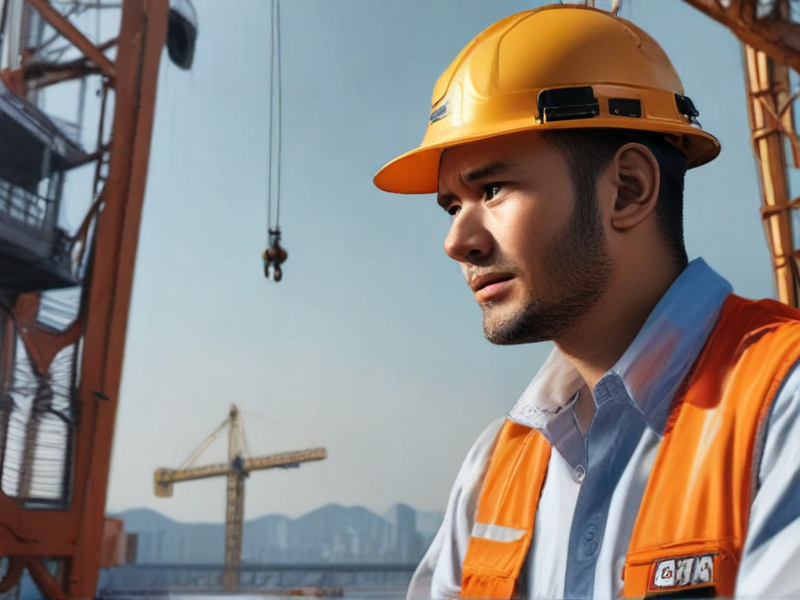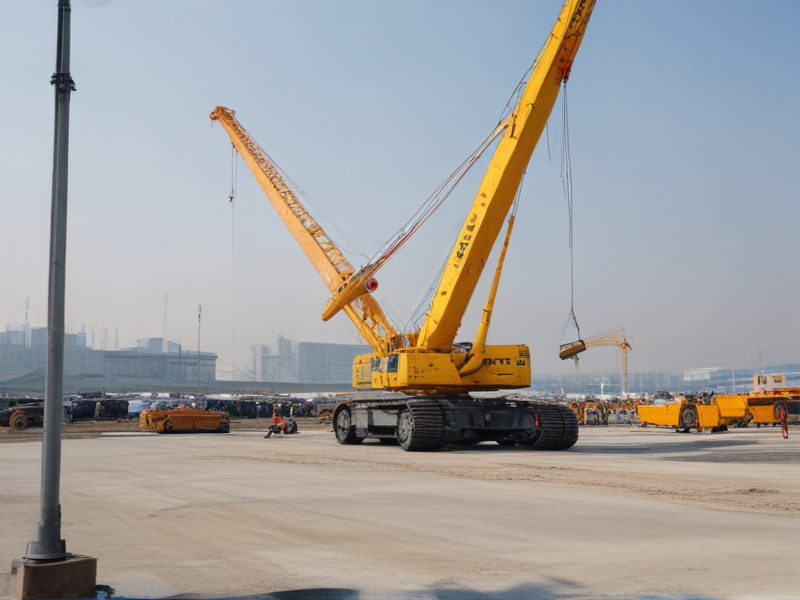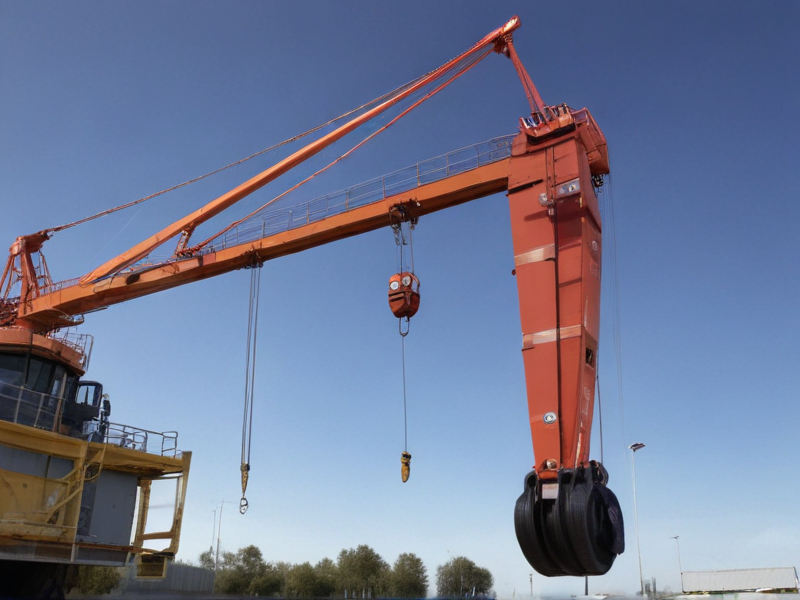Top 10 crane operator company in China introduce,list main products and website if have
Sure! Here are the top 10 crane operator companies in China:
1. XCMG (Xuzhou Construction Machinery Group)
– Main Products: All-terrain cranes, truck cranes, rough terrain cranes, tower cranes
– Website: [www.xcmg.com](http://www.xcmg.com)
2. SANY Group
– Main Products: Mobile cranes, crawler cranes, tower cranes, rough terrain cranes
– Website: [www.sanyglobal.com](http://www.sanyglobal.com)
3. Zoomlion Heavy Industry Science & Technology Co., Ltd.
– Main Products: Construction cranes, truck-mounted cranes, crawler cranes
– Website: [en.zoomlion.com](http://en.zoomlion.com)
4. Liebherr Machinery (Dalian) Co., Ltd.
– Main Products: Mobile cranes, tower cranes
– Website: [www.liebherr.com](http://www.liebherr.com)
5. Sinomach (China Machinery Engineering Corporation)
– Main Products: Crawler cranes, truck cranes, construction machinery
– Website: [www.sinomach.com.cn](http://www.sinomach.com.cn)
6. Shandong Huaxia Group Co., Ltd.
– Main Products: Tower cranes, construction cranes
– Website: [www.huaxiacrane.com](http://www.huaxiacrane.com)
7. Shanghai Hongda Heavy Industry Co., Ltd.
– Main Products: Tower cranes, construction hoists
– Website: [www.hongda.com.cn](http://www.hongda.com.cn)
8. Fangyuan Group Co., Ltd.
– Main Products: Tower cranes, concrete machinery
– Website: [www.fyg-china.com](http://www.fyg-china.com)
9. Zhejiang Construction Machinery Group Co., Ltd.
– Main Products: Tower cranes, concrete machinery
– Website: [www.zj-snjx.com](http://www.zj-snjx.com)
10. Xuzhou Jiufa Construction Machinery Co., Ltd.
– Main Products: Truck cranes, tower cranes, concrete mixers
– Website: [www.cn-xugong.com](http://www.cn-xugong.com)

How to find and select check reliable crane operator company in China
Finding and selecting a reliable crane operator company in China involves several key steps:
1. Research:
– Online Search: Use search engines to find crane operator companies in China.
– Industry Directories: Refer to industry-specific directories and trade websites.
– Business Portals: Utilize Alibaba, Made-in-China, and Global Sources.
2. Check Credentials:
– Licensing: Ensure the company has the necessary licenses and permits.
– Certifications: Look for ISO certification and other industry-specific certifications.
3. Experience and Expertise:
– Years in Operation: Prefer companies with substantial experience.
– Specializations: Ensure they have expertise in the type of crane operations you need.
4. Reputation:
– Reviews and Testimonials: Check online reviews and ask for client testimonials.
– Industry Reputation: Ask industry peers and contacts for recommendations.
5. Safety Record:
– Safety Protocols: Inquire about their safety procedures and records.
– Accidents and Incidents: Ensure they have a low incidence of accidents.
6. Insurance:
– Verify that the company has adequate insurance coverage for accidents and damages.
7. Equipment Quality:
– Modern Fleet: Ensure their equipment is modern and well-maintained.
– Maintenance Records: Ask for maintenance logs to check equipment condition.
8. Pricing:
– Get Quotes: Request detailed quotes from multiple companies.
– Compare: Compare not just on price but on services offered.
9. Communication:
– Responsiveness: Gauge their responsiveness and willingness to communicate.
– Language Proficiency: Ensure they have proficient English speakers.
10. Site Visit:
– If possible, visit their premises to assess their operations firsthand.
By following these steps, you can identify and select a reliable crane operator company in China that meets your requirements.
Background Research for crane operator company in China, use qcc.com archive.org importyeti.com
Background Research for Crane Operator Company in China
#### Overview
China’s crane operator sector is a rapidly growing industry driven by extensive infrastructure development. Suppliers and services related to crane operations are in high demand due to ongoing construction projects, urbanization, and industrial expansion across the nation.
#### QCC.com Insights
QCC.com, a comprehensive database for business information in China, reveals over 1,500 registered companies specializing in crane operations. Many of these firms are headquartered in key industrial regions such as Guangdong, Jiangsu, and Shandong. Notably, top players often exhibit well-established financial stability, extensive operational footprints, and various certifications indicating compliance with national safety and operational standards.
#### Archive.org Insights
Using Archive.org, historical data and snapshots reveal the industry’s persistent evolution over the past decade. Key trends include the adoption of advanced technologies for safety and efficiency, increasing investment in heavy-duty cranes, and the diversification of services to include maintenance, training, and consultancy. Prominent companies have expanded their online presence, reflecting the importance of digital channels in customer acquisition and service management.
#### ImportYeti Insights
ImportYeti, a tool for analyzing import records, showcases robust international trade activities by Chinese crane operators and manufacturers. Companies frequently import advanced components and technologies from leading global suppliers in Germany, Japan, and the United States. Conversely, China exports a substantial volume of crane machinery worldwide, with crucial markets including Southeast Asia, Africa, and South America. This import-export dynamic underscores China’s strategic role in the global crane industry.
#### Conclusion
The crane operator industry in China is marked by strong growth, technological advancements, and a significant role in global trade. Leveraging databases such as QCC.com, historical trends from Archive.org, and international trade data from ImportYeti delivers valuable insights into the operational landscape and market dynamics. These resources collectively affirm the industry’s vigorous expansion and the competitive edge that Chinese companies maintain on both domestic and international fronts.

Price Cost Research for crane operator company in China, use temu.com and 1688.com
Conducting research on the price and cost of hiring a crane operator company in China, we can utilize online platforms such as Temu.com and 1688.com to gather some preliminary insights. These platforms provide a variety of options and can help us estimate potential costs.
Temu.com
Temu.com is a business-to-business (B2B) e-commerce platform. Searching for crane operator services, we find various listings:
1. Hourly rates: Crane operator services are often quoted at hourly rates. From our search, prices can range from ¥400 to ¥800 per hour depending on the type of crane and the complexity of the task.
2. Daily rates: For longer projects, some companies offer daily rates ranging from ¥3,500 to ¥7,000.
3. Contract basis: For large-scale or long-term projects, negotiation on a contract basis might lower the overall costs.
1688.com
1688.com, a subsidiary of Alibaba Group, is a popular wholesale marketplace in China. The listings for crane operator services provide the following data:
1. Hourly rates: Various companies offer their services at rates between ¥300 to ¥700 per hour.
2. Package deals: Some companies provide package deals, which include both the crane rental and operator services. These deals can range from ¥5,000 to ¥10,000 per day depending on the type and capacity of the crane.
3. Maintenance and other costs: Additional costs might include daily maintenance, fuel, and operator overtime, which can range from ¥500 to ¥1,000 extra per day.
Summary
From the data on Temu.com and 1688.com, we can estimate that the cost of hiring a crane operator company in China ranges widely based on service terms, crane type, and project duration. Hourly rates are typically between ¥300 to ¥800, and daily packages can range from ¥3,500 to ¥10,000. It’s advisable to contact suppliers directly for detailed quotations and negotiate based on the scope of work and duration.
Compare China and Other crane operator company: Products Quality and Price,Visible and Hidden Costs
When comparing crane operator companies from China with those from other regions, various factors must be considered: product quality, price, and costs—both visible and hidden.
Product Quality and Price:
1. China:
– Quality: Chinese crane manufacturers have significantly improved quality over the years. However, some variability exists among different brands and models.
– Price: Generally, cranes from China are more affordable due to lower manufacturing and labor costs.
2. Other Regions (e.g., Europe, USA, Japan):
– Quality: Cranes from these regions often uphold superior standards in engineering, durability, and safety. Premium brands offer highly reliable machinery.
– Price: Higher manufacturing costs translate to more expensive products. The investment is higher but often justified by longevity and performance.
Visible and Hidden Costs:
1. Visible Costs:
– Initial Purchase Price: Chinese cranes are cheaper upfront. Machines from Europe, USA, and Japan are more costly due to advanced technology and stringent regulatory standards.
– Maintenance: Costs can vary; Western brands often focus on easy maintenance, but parts can be expensive. Chinese cranes may have lower immediate maintenance costs but potentially more frequent issues requiring attention.
2. Hidden Costs:
– Logistics: Importing cranes from China can incorporate significant shipping fees and extended delivery times. Western cranes might involve shorter delivery times and lower customs complications.
– Service and Support: Western companies often provide more comprehensive after-sales support, including training and service contracts. Service for Chinese cranes can be less robust, potentially leading to longer downtimes.
– Resale Value: Western cranes generally retain better resale value, offering better return on long-term investment. Chinese cranes might depreciate faster due to perceived lower reliability.
In summary, while cranes from China offer attractive initial pricing, Western cranes typically deliver higher quality and lower long-term risks. Buyers must weigh immediate savings against potential hidden costs and long-term reliability.
Custom Private Labeling and Branding Opportunities with Chinese crane operator company
Partnering with a Chinese crane operator company for custom private labeling and branding presents a host of lucrative opportunities. The booming construction and infrastructure sectors globally, combined with China’s advanced manufacturing capabilities, offer a fertile ground for such collaborations.
Firstly, Chinese companies are well-known for their cost-effective yet high-quality manufacturing processes. This allows for competitive pricing without compromising on quality. By engaging in private labeling, your brand can leverage superior Chinese engineering while maintaining a distinctive identity.
Moreover, the flexibility offered by Chinese crane operators in customization is unparalleled. From branding the machinery with your logo to customizing colors and design specifications, the possibilities are immense. Such tailored solutions can significantly enhance brand visibility and add value to your product portfolio.
Chinese firms are also adept at scaling production to meet your demands, ensuring timely delivery and consistency in quality. This is particularly beneficial for companies looking to expand rapidly or enter new markets. Additionally, many Chinese companies are compliant with international safety and quality standards, which can ease market entry and build customer trust.
The collaboration can extend beyond just equipment manufacturing. Joint ventures or technology partnerships can open doors to shared innovations and advancements in crane technology. This synergy can result in state-of-the-art products that give you a competitive edge.
However, working closely with a well-vetted, reputable Chinese company is crucial to ensure transparency and reliability. Establishing comprehensive agreements that cover intellectual property rights, quality assurance, and after-sales service can mitigate potential risks.
In conclusion, custom private labeling and branding with a Chinese crane operator company can drive growth, enhance brand reputation, and provide access to innovative technologies, making it a strategic move in today’s global marketplace.
Tips for Procurement and Considerations when Purchasing from crane operator company
When procuring services or equipment from a crane operator company, it’s crucial to make informed decisions to ensure safety, efficiency, and cost-effectiveness. Here are some tips and considerations:
1. Credentials and Compliance:
– Licensing and Certification: Ensure the crane operator and the company hold necessary licenses and certifications compliant with local regulations.
– Insurance Coverage: Verify that the company has adequate insurance, including liability and workers’ compensation to cover potential accidents.
2. Safety Record:
– Review the company’s safety history. High incident rates or OSHA violations can indicate potential risks.
– Ask for details on their safety protocols and training programs for operators.
3. Experience and Expertise:
– Gauge the company’s experience in handling similar projects and understand their specialization.
– Reviewing past projects or client testimonials can offer insights into their reliability and expertise.
4. Equipment Condition and Maintenance:
– Assess the quality and maintenance records of the cranes and related equipment. Well-maintained machinery is crucial for safety and performance.
– Inquire about age, load capacities, and technological innovations in their equipment fleet.
5. Cost Estimation and Budgeting:
– Obtain detailed quotes from multiple companies to compare costs. Be wary of unusually low bids which may cut corners on safety or quality.
– Ensure transparency in pricing, including hidden fees like transport, assembly, or overtime charges.
6. Service Flexibility and Availability:
– Confirm the availability of cranes and operators for your project timeline.
– Check their policies on service flexibility, such as handling project delays or urgent requirements.
7. Support Services:
– Evaluate additional support services offered, like logistics planning, permitting assistance, and on-site supervision.
– Proper support services can alleviate project management burdens and enhance overall productivity.
8. Contract Terms:
– Scrutinize the contract for details on scope, delivery schedules, payment terms, and cancellation policies.
– Ensure there are clear terms on liability, dispute resolution, and compliance with safety standards.
By focusing on these key areas, you can select a crane operator company that aligns with your project’s needs, ensures safety, and provides cost-effective solutions.

FAQs on Sourcing and Manufacturing from crane operator company in China
FAQs on Sourcing and Manufacturing from Crane Operator Companies in China
1. Why source cranes from China?
– China offers competitive pricing, advanced manufacturing technology, and a diverse range of crane types. Manufacturers adhere to global standards, ensuring quality and reliability.
2. How do I find reliable crane manufacturers in China?
– Research online directories, attend trade shows like the Canton Fair, and consult industry associations. Verify credentials through certifications and customer reviews.
3. What types of cranes are available?
– Chinese manufacturers offer mobile cranes, tower cranes, crawler cranes, and overhead cranes. Custom solutions are also available to meet specific project needs.
4. How do I ensure the quality of the cranes?
– Request product certifications (ISO, CE), conduct factory audits, and consider third-party inspections. Testing and quality control measures should be verified.
5. What is the typical production lead time?
– Lead times vary based on crane type and order size but generally range from 30 to 90 days. Confirm timelines directly with the manufacturer.
6. Can I customize the cranes?
– Yes, most manufacturers offer customization options for specifications such as lifting capacity, dimensions, and additional features.
7. What is the cost structure?
– Pricing includes the base cost, customization, shipping, and import duties. Request detailed quotes to understand the total investment.
8. How do I handle shipping and logistics?
– Manufacturers usually assist with logistics. Partner with experienced freight forwarders to manage customs, tariffs, and local delivery.
9. What are the payment terms?
– Payment terms vary but typically require a deposit (30%) with the balance paid before shipment. Letters of credit (L/C) and telegraphic transfers (T/T) are common.
10. Is after-sales support available?
– Reputable companies provide after-sales services including installation, training, and maintenance. Verify the support scope and availability.
For more information or specific inquiries, contact the manufacturer directly or consult with a sourcing agent specializing in heavy machinery.

